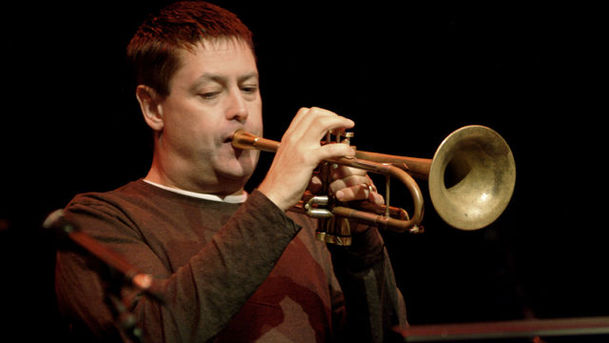Jazz Junctions - Oop Bop Sh'Bam

Guy Barker continues to explore the history of jazz, focusing on the turning points and pivotal events that have shaped the genre, and discovering some great stories and larger-than-life characters along the way. Episode six, Oop Bop Sh'Bam! charts the emergence of bebop. One of the most important developments in the entire history of jazz was bebop: it signalled the decline of the big band and the rebirth of the small group, and led the way with new harmonic and rhythmic vocabulary. Bebop had been incubating since 1939 with Coleman Hawkins' seminal recording of Body and Soul paving the way and, that same year, young saxophonist Charlie "Yardbird" Parker was trying to develop new ways of playing jazz, using the higher intervals of the chords as a basis for improvisation. Along with like-minded musicians such as trumpeter Dizzy Gillespie and pianist Thelonious Monk, Parker developed this new musical language at jam sessions at New York clubs like Minton's Playhouse. But, because of the 1942-1944 American Federation of Musicians' recording ban, it was not until 1945 that bop began to have a substantial effect on the jazz world. Bebop led to a massive jazz rift: many of the older jazz musicians rejected the angular melodies, the break-neck speeds and the extreme virtuosity required to perform bebop, denouncing it with cutting comments; although some older musicians such as Benny Goodman and Coleman Hawkins did embrace the new style, with varying degrees of success. But for young jazz musicians in the 1940s, bebop represented a return of jazz to its small-group roots, and an exciting opportunity to be part of something new and to lead the music in a new direction from which it has never looked back. Guy Barker looks at the rise of bebop with the help of Sir Charles Thompson, Bill Crow, Jeff "Tain" Watts, Eddie Bert, Jimmy Cobb, Ed Shaughnessy, Terry Gibbs, Albert "Tootie" Heath, Loren Schoenberg and Ira Gitler. There are also archive contributions from Sonny Rollins, Billy Eckstine, Jay McShann, Ross Rusell and Charlie Parker himself.